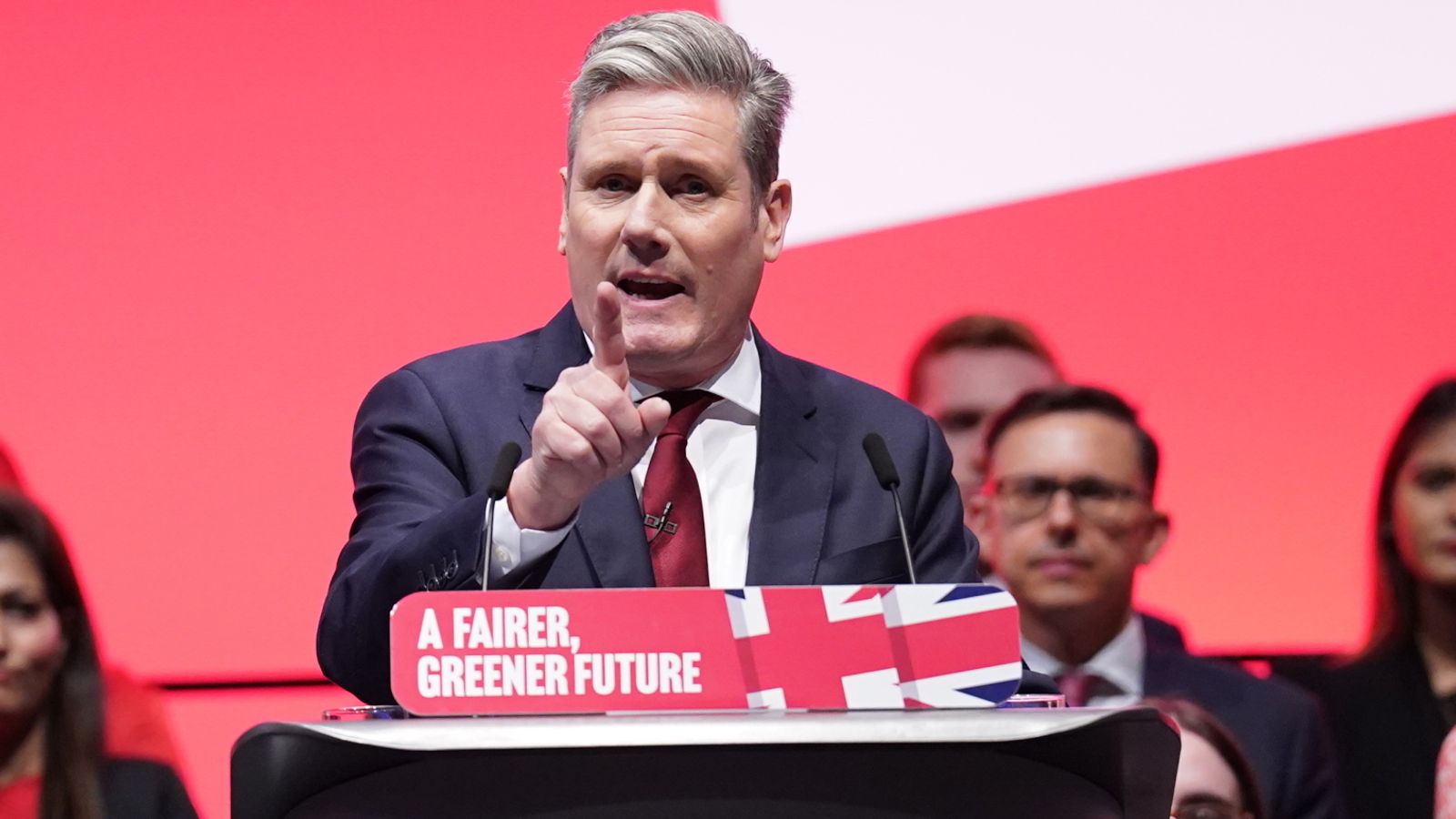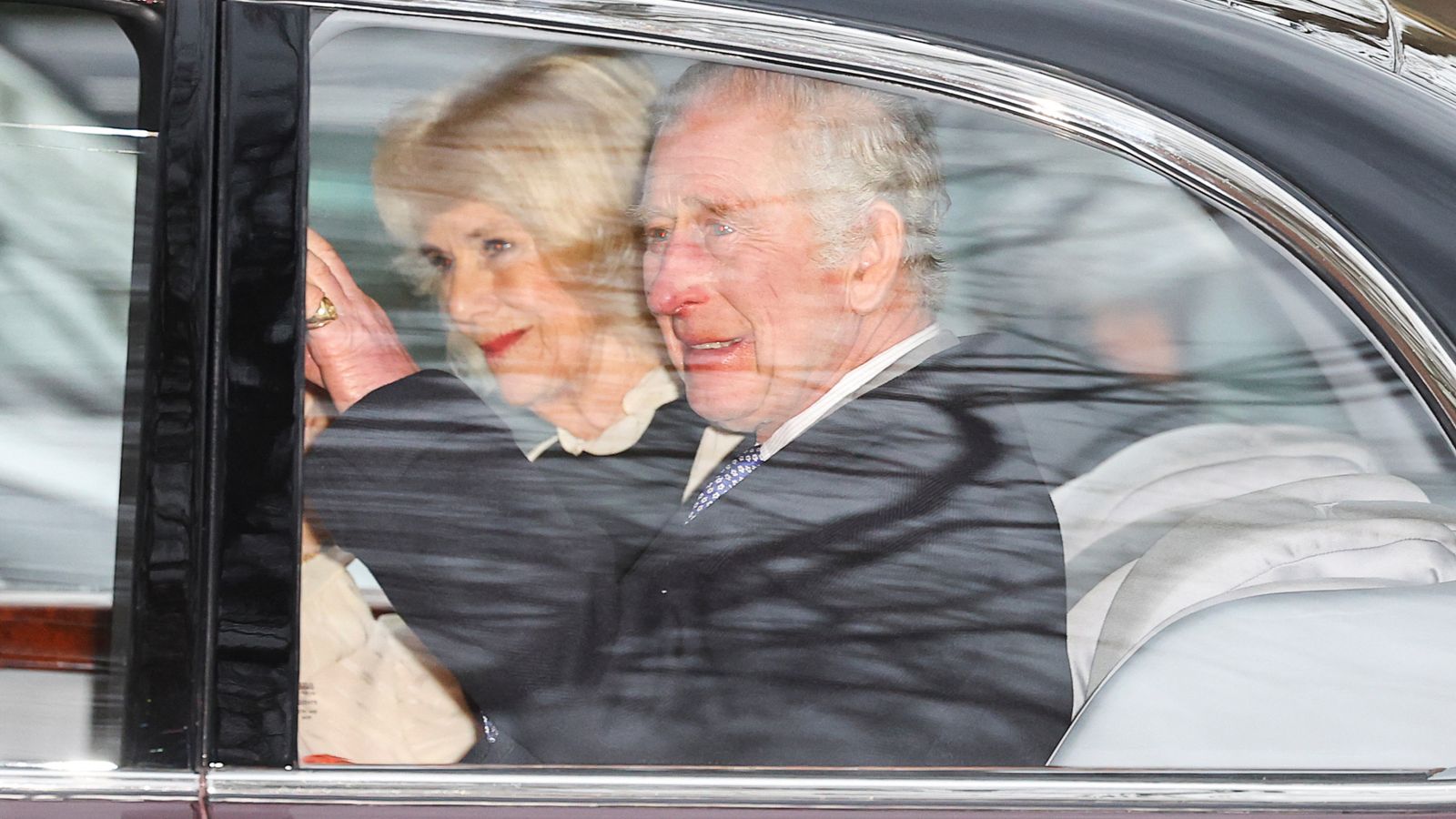Labour’s pledge to insulate millions of homes in a decade will cost at least double what the party previously claimed, according to government analysis – but Labour says the maths uses “bogus assumptions”.
Civil servants from the Department for Energy Security and Net Zero have released an Opposition policy costing document – a normal pre-election step to examine the impact of policies from a potential new government on the finances of the country.
The Conservatives have already jumped on the figures to claim Labour would need to raise taxes in order to pay for new insulation.
Politics latest: Rishi Sunak faces Keir Starmer at PMQs
Sky News Monday to Thursday at 7pm. Watch live on Sky channel 501, Freeview 233, Virgin 602, the Sky News website and app or YouTube.
Meanwhile, Labour says the “costing is ludicrous and uses bogus assumptions”.
The government states that the plan will cost between £12.5bn a year and £14.7bn a year over the next decade. Labour has said it will spend £6bn a year on the policy.
However, the document is caveated and lays out its own limitations – while Labour has maintained a pledge to be fiscally responsible.
For example, it says civil servants were told to ignore spending limits when coming up with analysis – something Labour has said it will stick to.
The analysis focuses on Labour’s warm homes plan, which aims to make all homes at least an EPC rating C by 2034.
An EPC C rating is required for homes to be compliant with the Minimum Energy Efficiency Standards and for homeowners to be able to obtain a Green Mortgage, which offers preferential interest rates.
It is assumed that Labour’s plan would involve the renovation of 1.9 million homes every year for a decade, and no conclusion is drawn about whether supply chains can handle the projects. In total, Labour says it wants to upgrade 19 million houses.
Meanwhile, a cost for administration is factored in at the lower end of around 10% of the budget.
It is estimated that each home will cost £7,529 to renovate.
Read more:
Labour ‘will’ spend £28bn on green pledges
Reeves won’t commit to £28bn pledge
Please use Chrome browser for a more accessible video player
The costing makes several assumptions; For example, that support plans such as the Great British Insulation Scheme do not continue past their current expiration dates and that there is no change in funding based on household income.
Furthermore, the modelling is based on the whole of the UK – and notes that if the policy were implemented with capital allocation in England, then it would result in a 2% reduction in costs due to the way money is distributed to devolved administrations.
Neither does it take into account other considerations, such as the reduction of NHS costs due to fewer cold-related illnesses, changes in VAT take from government due to lower energy usage, installations and people spending money elsewhere. Lower costs of the heat-pump rollout and reduced expenditure of building electricity generation are also factors that are overlooked.
Follow Electoral Dysfunction on Apple Podcasts, Spotify, Spreaker or wherever you get your podcasts.
Chancellor Jeremy Hunt said: “This official costing shows that a key plank of Labour’s policy costs double what they have claimed.
“But given it was all coming out of a £28bn a year spending splurge which is cancelled one day and then reinstated the next, the overall picture is an Opposition party in a general election year that simply does not have an economic plan.
Be the first to get Breaking News
Install the Sky News app for free
“And when you have an explicit spending commitment without a plan to pay for it, it can only mean one thing – higher taxes.”
A Labour spokesperson said: “This costing is ludicrous and uses bogus assumptions. They have costed someone else’s policy, not Labour’s.”










